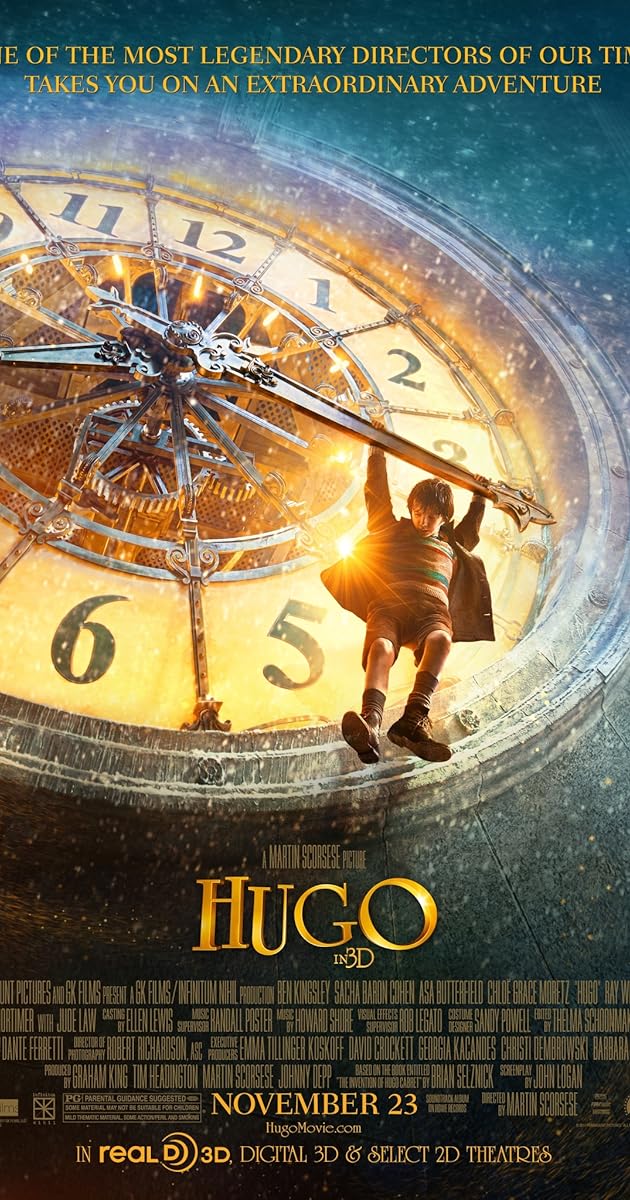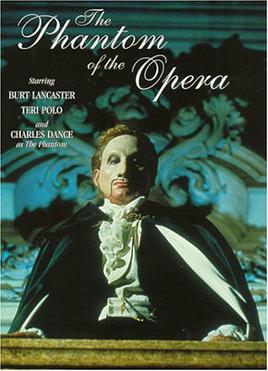As a child, I became aware of The Phantom of the Opera through this mini-series. My father introduced me and my sisters to this mini-series after it had been recorded on vhs.
This tv mini-series is based off of the play by Arthur Copit of the same title. Arthur Copit's play was in turn inspired by the original novel The Phantom of the Opera by Gaston Leroux. As such this mini-series had some details that were at least more reminiscent of the original novel that aren't usually seen in other film versions of The Phantom of the Opera. For example, this particular mini-series has the unique distinction of being the only "Phantom picture (rather mini-series)" filmed on location at the Palais Garnier featured in the original novel. Besides that obvious difference from some of the other "Phantom pictures", this mini-series also features actual operatic pieces referenced and/or featured in the original novel.
In this version of the classic story, Christine Daee (played by Teri Polo) comes to the Palais Garnier to join the chorus. She has been sent to Paris by the dashing Comte Philippe de Chagny (played by Adam Storke). Unfortunately for Christine, the old opera house manager Gerard Carriere has just been replaced by a new manager Monsieur Cholet (played by Ian Richardson). Monsieur Cholet is most intent on providing a grand stage for his "beautiful and talented" wife Carlotta (played by Andrea Ferreol). Unbeknownst to Monsieur Cholet, the opera house is haunted by a ghost called The Phantom of the Opera (played by Charles Dance). The Phantom of the Opera is in fact a flesh and blood man named Erik who lives below the opera house in his house on the edge of a lagoon.
After hearing Christine sing one night, Erik is captivated and determines to offer to train her both to improve her singing and because he loves her and wishes to spend time with her. Christine is pleased to be given the chance to have singing lessons as this was her intention and hope when she had first arrived at the Palais Garnier.
When the Phantom offers her lessons, he insists on remaining anonymous and as such will wear a mask during their time together. Christine obviously finds this a little strange but decides to go along with it out of eagerness to learn.
As she spends time with the Phantom, she begins to grow fond of him both because he is granting her wish to learn to sing and due to spending time in close proximity. Just as things seem to be heading in a more romantic direction as far as the Phantom is concerned, Philippe arrives in Paris.
As in the other versions of this story, Christine finds herself torn between her love for Philippe and her "love" for the Phantom. After she hurts the Phantom as a result of first fainting away at the sight of his face rather than embracing him as she promised then escaping from him, Christine decides that she must try to make amends. As such she sings for the Phantom during a production of Faust. Once more she finds herself torn between her two loves and must make a choice. Will it be her scarred but loving Erik who helped her achieve her goals and dreams? Or will it be her childhood love whom she now regards with more adult feelings of love? If you don't know then I suggest you look it up online because the answer is the same as in all of the other Phantom works whether they are print, film, or music.
As I stated above, this mini-series featured many details referenced or used in the original novel. If you want to know them all, I would advise reading the original novel then watching this mini-series. If you don't want to enjoy the experience of reading the original novel then watching this mini-series I suppose you could look it up online or ask someone who could answer.
In any case, I am very fond of this version of The Phantom of the Opera for a number of reasons besides some that I have already mentioned. For me, this film has sentimental value due to my father enjoying this movie and memories of watching this movie with him and because of him. The sentimental value has increased with the passing of my father.
Another reason that I love this version is largely due to Charles Dance's performance as Erik. In truth, as young as I was, I was captivated by Charles Dance as Erik. While my girlhood didn't tremble (1,000 points to anyone who gets that reference ;) ) he was definitely one of my first "loves" of film. The writers and Charles Dance were able to bring more humanity to the character while still maintaining aspects of the darkness that is part of the original Phantom.
Consider that in the original novel, the Opera Ghost starts out as somewhat mischievous ghost with an air of menace if crossed. He then becomes something of an obsessive homicidal demon of a man who as it turns out is just as bad as people feared and yet ends up a "pitiful creature" who really just wants to be loved. Don't get me wrong. I am not criticizing the original novel in any way, shape, form, or fashion. We wouldn't have this wonderful mini-series without the original novel.
What I am saying is that Charles Dance made him as relatable as possible considering the character and the circumstances that the character dealt with. He displayed humor albeit dry humor but it was still funny. While her voice attracted him, this Phantom seemed to genuinely love Christine more so than I feel is conveyed in other Phantom works (not that that is a good or bad thing). Probably one of the best parts of Charles Dance's performance as the Phantom is that it is understated and subtle. Many of his emotions are beautifully conveyed despite the masks that he wears throughout the movie. To this day, I adore Charles Dance and am willing to watch many things that he is in simply because he is in them because of this movie.
I confess that I was appalled and a little angry when a magazine published an article about this mini-series in 2004 when Sir Andrew Lloyd Webber's great The Phantom of the Opera made it to the big screen. The article was talking about a handful of the noteworthy Phantom film works that had been released over the years. Of all of them, this mini-series was criticized as the worst because "the phantom was a wuss" essentially. I felt then and I feel now that the writers of the article obviously misread and didn't understand Charles Dance's performance in this mini-series.
This movie is also special to me because it taught me a valuable lesson. In this picture Teri Polo does a very excellent job as Christine. She portrayed her with sincerity and truth even when the truth isn't nice. I'm specifically referring to a habit that Christine has in this picture when confronted with a situation involving either Erik or Philippe and in one instance both in which she finds she isn't getting her way (essentially).
To elaborate more, when she wants Erik to take off his mask to show him that she loves him and he tells her no a few times she says one of the worst things (in my opinion the worst thing) that a person can say to another person who cares about them. She starts her statement with "If you love me" and continues from there. She makes a similar starting "If you love me" statement to Philippe when she wants him to take her back to the opera house to sing for Erik.
The lesson that I learned from watching this as a child is that saying "If you love me" is a terrible thing to say to someone who loves you because it is forcing them to do something that they don't want to do and will probably ultimately hurt them more than can recompense for whatever immediate gratification you might be getting by using this against them. I am very glad that I learned this lesson at such a young age and would never condone using a statement like that unless someone's life truly depended on it.
The story of this film provides an alternate history to the Phantom, where he comes from, who he is, why he's in the opera house, what happened to his face, etc. While it might not be as interesting to some as other works, I thought that it was good, better than some others even.
Two words of explanation/spoiler before I end this. First word of explanation/spoiler, in the original play that this mini-series is based off of, the actress who portrays Christine also portrays the Phantom's beautiful mother. I guess the intention is to imply a disturbing Oedipal-complex thing with the Phantom because Christine reminds him so much of his mother who loved him (I personally loved that the Phantom's mother actually loves him in this picture but anyway). The only problems with that is A)It's confusing as heck if you don't know. B) The Phantom is a baby when his mother dies so how is it Oedipal if he doesn't even remember what she looks like? But I digress.
Second word of explanation/spoiler, unlike other productions of the Phantom of the Opera, the audience isn't intended to see the Phantom's face. When the Phantom's mask comes off, his back is to the audience and it is up to the actress who portrays Christine to convey to the audience just how horrifying his face looks. By the way, Teri Polo did an excellent job.






